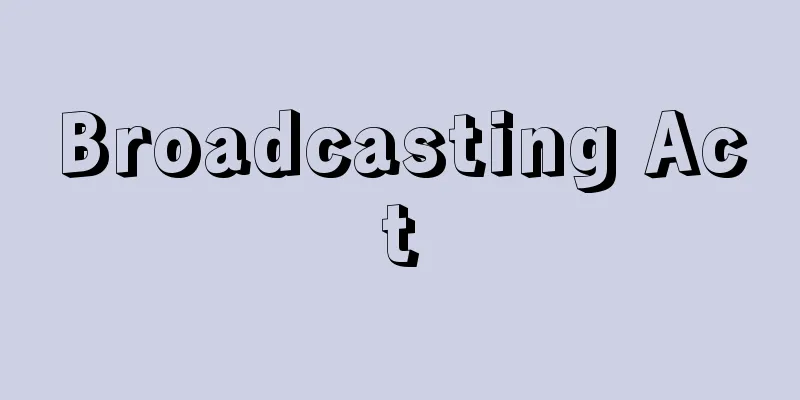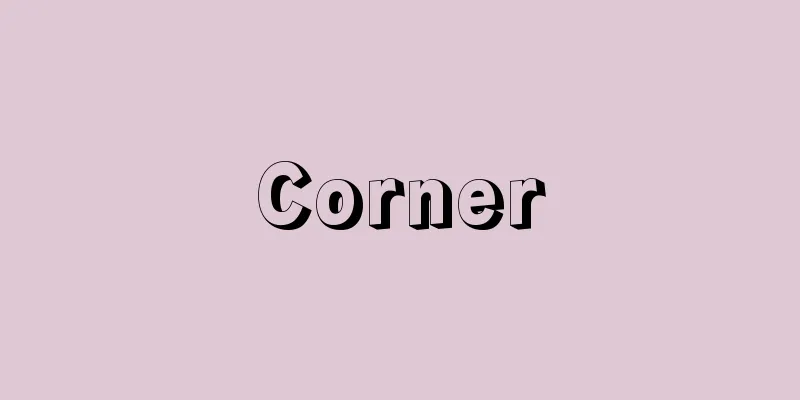Broadcasting Act

|
This law, number 132 of 1950, stipulates the basic form of broadcasting in Japan. Its purpose is for Japanese broadcasting to conform to the public welfare and contribute to the development of a healthy democracy, and for that purpose it was enacted with freedom of broadcast program editing as its foundation. The current basic laws that directly regulate broadcasting are the Radio Law and the Broadcast Law, but when Japanese broadcasting restarted after World War II, the Law to Establish the Radio Regulatory Commission was also established, and these were called the Three Radio Laws. The Radio Regulatory Commission was an independent administrative commission with the authority to administer radio waves independently of the government, but this law was abolished in August 1952 (Showa 27), and the authority for broadcasting administration was entrusted to the Minister of Posts and Telecommunications. After the reorganization of government ministries and agencies in 2001 (Heisei 13), the Minister of Internal Affairs and Communications took over the authority. The Broadcast Law consists of 6 chapters, 59 articles, and supplementary provisions. Chapter 1, section 1, is a general provision that stipulates the purpose of the Broadcast Law, definitions of terms, and the Basic Plan for the Dissemination of Broadcasting. Chapter 1, section 2, is a general provision on the editing of broadcast programs, and stipulates the freedom of program editing, program standards, program review bodies, broadcast corrections, program preservation, rebroadcasts, and broadcasts in the event of a disaster. Chapter 2, section 1, stipulates in detail the purpose of the establishment of the Japan Broadcasting Corporation (NHK), its business, board of governors, organization, officers, reception contracts, international broadcasting, and program editing in 44 articles. The number of articles stipulating NHK is so large that it exceeds 70% of the entire Broadcast Law, which results in the Broadcast Law's character being significantly similar to that of the Japan Broadcasting Corporation Establishment Law. The following Chapter 2, section 2, stipulates the Open University of Japan, which broadcasts the Open University of Japan. Chapter 3, section 1, is a provision on general broadcasting operators, i.e., private broadcasting, but there is a significant quantitative difference from the Japan Broadcasting Corporation just in Articles 52, sections 1 to 8. Chapter 3, Sections 2 and 3, stipulate the entrustors and trustees of broadcasts transmitted by satellite radio stations for reception both domestically and overseas. These provisions were added in the age of satellite broadcasting. Chapter 4 stipulates the Program Center designated by the Minister of Internal Affairs and Communications to carry out tasks such as collecting and storing broadcast programs and providing viewing opportunities to the public. Based on these provisions, the center has established a broadcast program library (Yokohama City) that is open to the public. Chapter 5 contains miscellaneous provisions, and Chapter 6 contains penalties. As technological innovation in the media continues to advance, new broadcasting-like services are appearing one after another, and it is already predicted that the current partial revision of the Broadcasting Act will eventually be no longer able to keep up with the demands. [Goto Kazuhiko] [References] | | | | |Source: Shogakukan Encyclopedia Nipponica About Encyclopedia Nipponica Information | Legend |
|
日本の放送の基本的あり方について定めた法律。昭和25年法律第132号。日本の放送が公共の福祉に適合し、健全な民主主義の発達に貢献することを目的とし、そのために放送番組編集の自由を基本に据えて制定されている。放送を直接規律する現行の基本的法律は、電波法と放送法であるが、第二次世界大戦後、日本の放送が再出発したときには、このほかに電波監理委員会設置法が設けられ電波三法といわれた。この電波監理委員会は政府から独立して電波行政を行う権限をもつ独立行政委員会であったが、同法は1952年(昭和27)8月廃止され、放送行政の権限は郵政大臣にゆだねられることになった。2001年(平成13)の省庁再編後は総務大臣が権限をもつ。 放送法は6章59条と附則からなる。第1章の1は総則で放送法の目的、用語の定義および放送普及基本計画について定めている。第1章の2は放送番組の編集等に関する通則で、番組編集の自由、番組基準、番組審議機関、訂正放送等、番組の保存、再放送、災害の場合の放送などについて規定している。第2章の1で日本放送協会(NHK)の設置の目的、業務、経営委員会、組織、役員、受信契約、国際放送、番組編集のあり方などを44条にわたって細かく定めている。この日本放送協会の規定部分が条数で放送法全体の7割を超えるほど大きいことが、結果として放送法の性格を著しく日本放送協会設置法的なものにしている。続く第2章の2は放送大学の放送を行う放送大学学園について規定している。第3章の1は一般放送事業者、すなわち民間放送に関する規定であるが、第52条の1から8までだけで日本放送協会との量的相違が著しい。第3章の2および3は人工衛星の無線局によって国内外での受信を目的として行われる放送の委託者と受託者について規定している。衛星放送時代に入って付け加えられた条項である。第4章は放送番組の収集、保管、公衆への視聴機会の提供などの業務を行うものとして、総務大臣が指定する番組センターについて定めている。この規定に基づいて、センターが設けた放送番組ライブラリー(横浜市)が一般に公開されている。第5章が雑則、第6章が罰則となっている。 メディアにかかわる技術革新の進展によって放送に類似のサービスが次々に登場している現在、現行の放送法の部分的改正では、いずれ対応できなくなることがすでに予想されている。 [後藤和彦] [参照項目] | | | | |出典 小学館 日本大百科全書(ニッポニカ)日本大百科全書(ニッポニカ)について 情報 | 凡例 |
<<: Toyozobo Shinkai - Toyozobo Shinkai
Recommend
Logical Words - Ronrigo
In logic, among the elements of language, a basic ...
Dialyzer
…A type of dialysis. When the kidneys' waste ...
Amida Sammai Hall - Amida Sammai Hall
...A hall where Amida Buddha is the principal ima...
Mount Kahara - Kawaradake
(Kahara Town, Tagawa District, Fukuoka Prefecture)...
Quinacridone pigment - Quinacridone pigment
A type of high-grade organic pigment recently deve...
Dakins' solution
…A. Labarraque used it earlier in 1825 to clean i...
Atmospheric refraction
In astronomical observations, the position of a ce...
Ogasawara Mochinaga
Year of death: 15 June 1462 (12 July 1462) Year of...
Mahanuwara
...Kanda means mountain in Sinhalese, but the nam...
Oxo compound
…Oxo compounds are also called oxo compounds. A g...
Kinda Kingdom - Kinda Kingdom (English spelling)
A kingdom in central Arabia in the 5th and 6th cen...
Zalophus californianus japonicus (English spelling)
…[Tokuji Chiba]. … *Some of the terminology that ...
Striped loach (Shimadojou) - Striped loach (English spelling)
A freshwater fish of the family Cobicidae in the o...
Kim Manjung - Kinmanju (English spelling)
[Born] King Injo 15 (1637) [Died] Sukjong 18 (1692...
Gulf of Lion - Lion (English spelling) Golfe du Lion
A bay in the northwestern Mediterranean Sea of ...

![Nagaokakyo [city] - Nagaokakyo](/upload/images/67cc6297ea3d9.webp)







